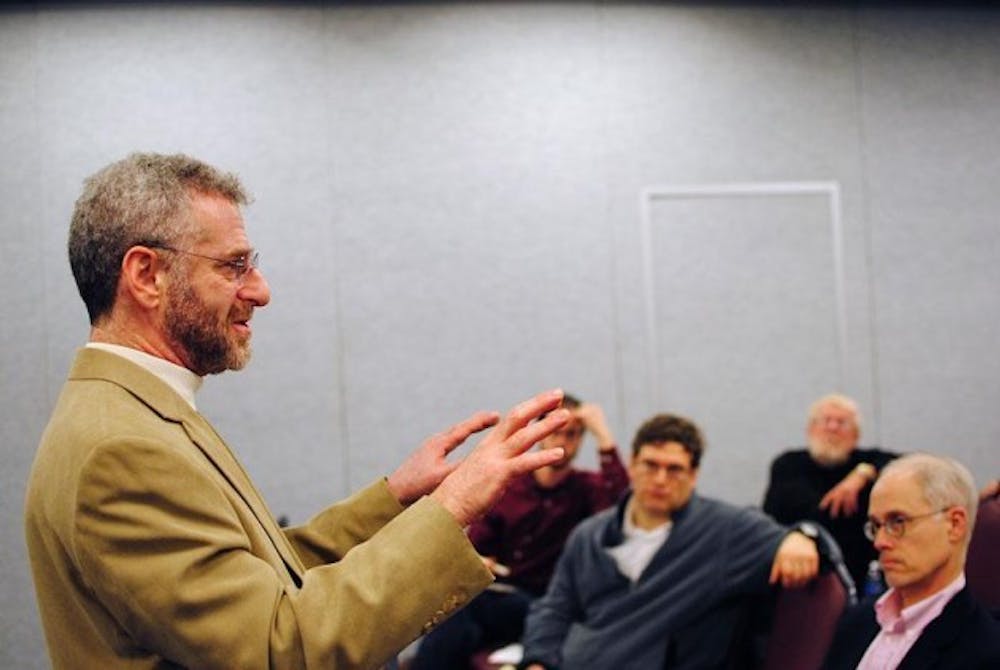Wednesday marked the beginning of the three-day Hourani Lecture Series hosted by the UB Department of Philosophy. J. David Velleman, a professor of philosophy and bioethics at New York University, will be presenting all three lectures.
The Hourani Lectures are in commemoration of George Hourani, one of the preeminent scholars of Islamic philosophy and Near Eastern history. After studying at both Oxford and Princeton University, he began teaching at the University of Michigan, Ann Arbor.
In 1967, Hourani came to UB to teach, where he served as the Chair of the philosophy department from 1976 until 1980. In 1980, he was one of the Near Eastern scholars called by President Jimmy Carter to discuss U.S. relations with the Muslim world, two years before his retirement in 1982.
Wednesday's lecture, entitled "Regarding Doing Being Ordinary," focused on how one's actions are constrained by pre-existing socially constructed action-types. Much of this social repertoire remains in the background of our thought, according to David Hershenov, chair of the philosophy department, in his description of the lecture.
"We have a taxonomy of action-concepts by which we interpret one another and make ourselves interpretable," Velleman said. "This is a shared taxonomy of action-concepts to make it possible for us to do these things, to have shared intentions, and to participate in a social scenario."
To further illustrate this point, Velleman included numerous examples where a shared action-concept is clearly implicated. There is an expected behavior set that allows one to be understood. This language did not necessarily have to consist of the spoken word, but of a series of interpretable actions.
"If you want to ride the subway in New York, you better know how to make yourself understood," Velleman said. "The crowding in, brushing past, reaching around, stepping aside, sprinting as opposed to chasing, nudging as opposed to jostling. When you come to New York, speak the local language of action."
The lecture was followed by a question-and-answer period, where Velleman's ideas were further considered and questioned. According to Hershenov, it is rare for a philosopher to focus so much on social sciences such as anthropology, linguistics and sociology.
"The audience appreciated Velleman's open-mindedness and willingness to revise his positions or admit they needed more development in light of their questions and criticism," Hershenov said when considering Velleman's first lecture.
On Thursday, Velleman lectured about reasonable relativism, which is considered to be the most controversial of the topics. Velleman contends that there aren't moral disagreements between cultures because their norms are only relevant in their own respective cultures. However, Velleman believes there is still a way to compare and judge cultures despite these varying norms.
Friday's lecture is on personhood, which Velleman argues is natural and is essentially the ability to reflect on one's own thought. It can transcend cultural bounds, but this doesn't necessarily mean that valuing will take place in the same way. Mutual interpretation and coordination can only occur if one recognizes that others view themselves as self-reflective creatures.
Friday's lecture is free and open to the public. It is set for 4 p.m. in the Main Ballroom in the Center for Tomorrow, with a reception to follow.
E-mail: features@ubspectrum.com





